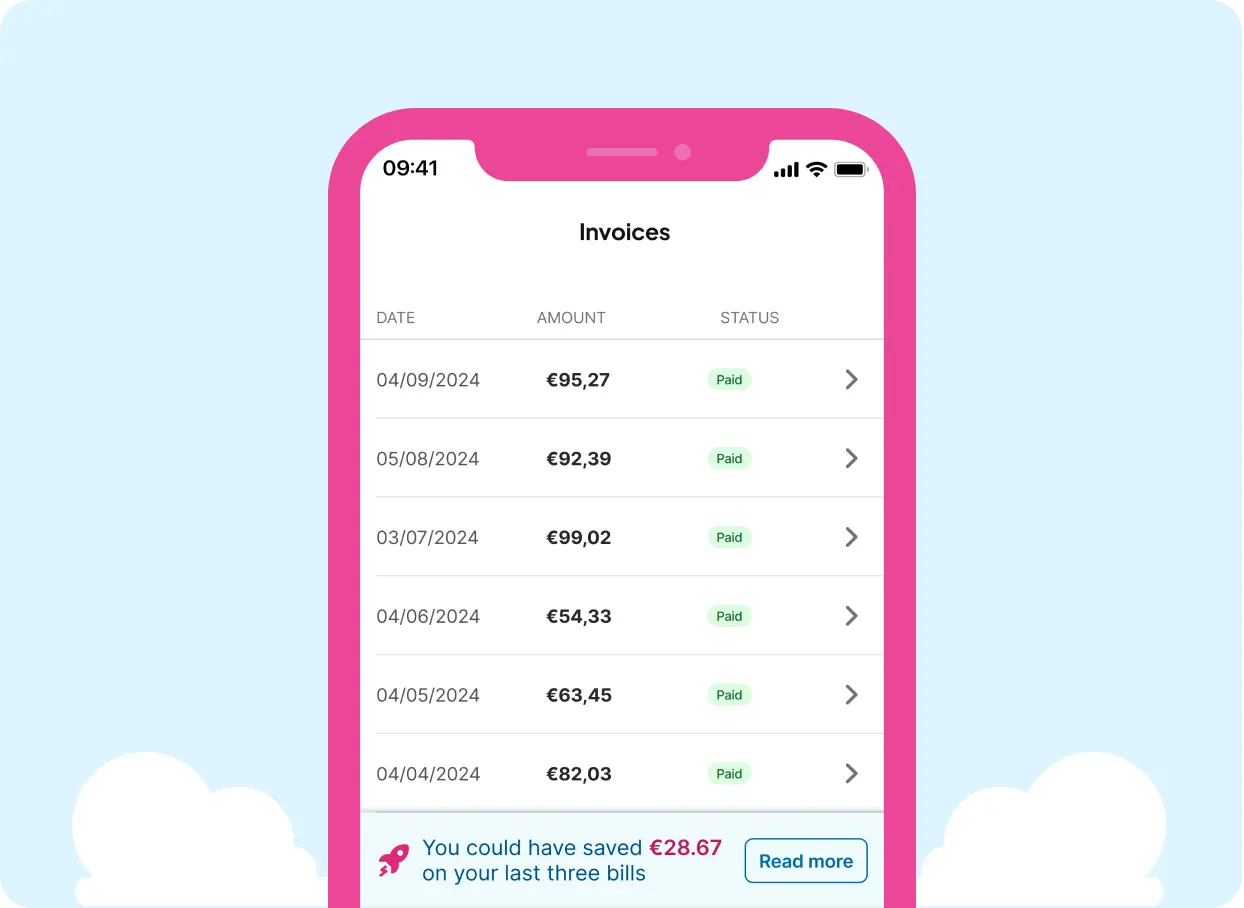Charging Guide: Renault 5 Electric
Launched as an electric version in 2024, the Renault 5 stands out with its high-performance battery, everyday driving range, and optimized power that combines sporty driving with efficiency.
Looking for the best charging solutions for your Renault 5 Electric?
Chargemap has gathered everything you need to know about charging the Renault 5 — including key vehicle specs, charging options at public stations and at home, charging times and costs, and much more!
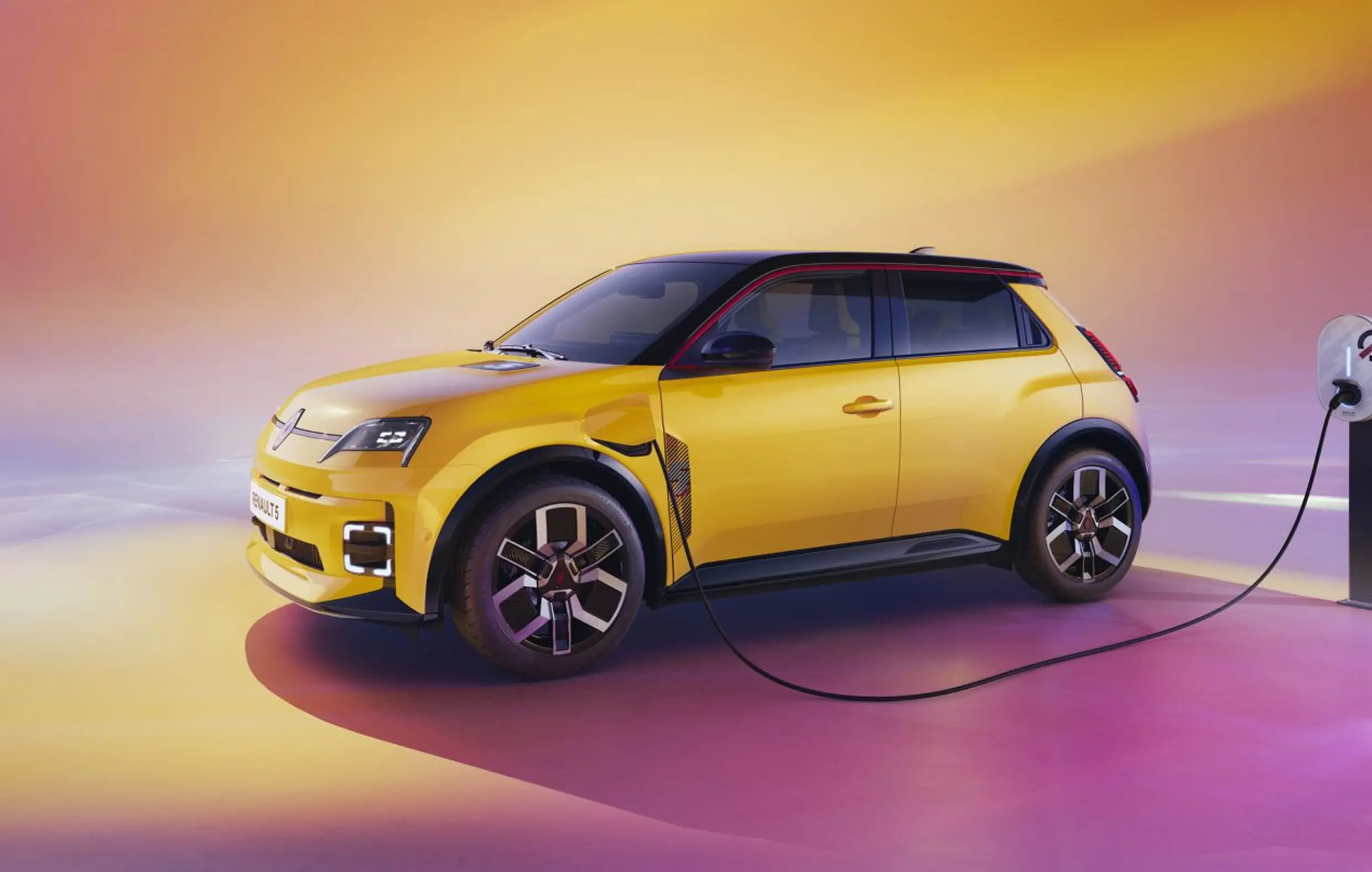
Renault 5 Electric – Quick Technical Specs
| Specifications | Details |
|---|---|
| Official Range | 300 km to 412 km* |
| Compatible Connectors | Type 2 for AC Charging CCS Combo for DC Fast Charging |
| Maximum Accepted Power | AC: up to 11 kW (Three-phase) DC: up to 80 kW |
*According to the manufacturer’s data, the Renault 5 Electric has a range of between 300 km and 412 km on a single charge. Actual range may vary based on several factors, including battery charge level, driving conditions, driving style, outdoor temperature, use of onboard equipment, and more.
How to Charge Your Renault 5 Electric at Public Charging Stations
Charging your Renault 5 Electric at a public charging station is simple and accessible — as long as you know the key steps and have the right tools. Here’s how to do it:
1. Locate nearby charging stations
To charge your vehicle while on the road, the first step is to find a compatible public charging station.
With the Chargemap app, you can:
- Search for available charging stations near you or along your route.
- Check real-time charging station availability.
- Get key information: connector type, charging power, and pricing with the Chargemap Pass.
- Plan your charging stops using the built-in route planner.

Download the Chargemap app for free on your mobile phone
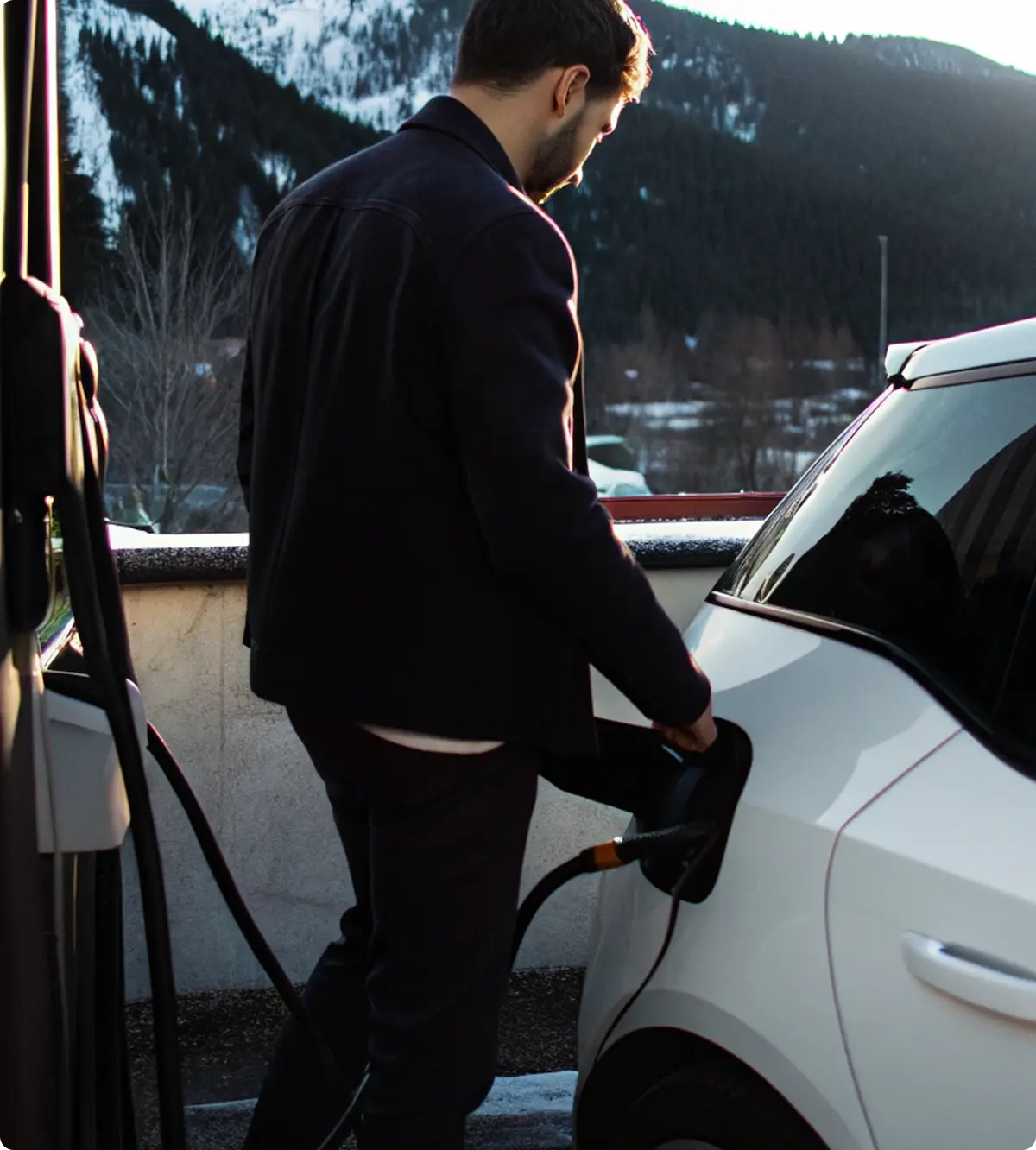
2. Choose the right charging power for your needs
When charging your vehicle on the go, the first step is to find a compatible public charging station.
AC charging stations (Alternating Current):
- Power: generally between 7 kW and 22 kW
- Ideal for longer charging sessions (e.g. at work or during a long break)
DC charging stations (Direct Current):
- Power: from 50 kW to over 350 kW for ultra-fast charging stations.
- Ideal for quick charging during long trips.
3. Simplify Your Charging with the Chargemap Pass
To easily charge your Renault 5 Electric at public stations, it’s recommended to use a multi-network charging card like the Chargemap Pass.
Wide Compatibility
- Access to over {{charging-points}} charging points
- Compatible with 1,700+ networks (including IONITY, Tesla Superchargers, Fastned, Lidl, and more) across 19 European countries
Simplified Management
- One single card for all your payments — no need for a separate subscription for each network.
Deferred payment
- One detailed charging receipt. Get a full summary at the end of each charging session and pay later.
Regular promotions and special offers
- Up to 30% off. Enjoy plenty of special offers throughout the year!


Tips
Find the charging rates for stations compatible with the Chargemap Pass directly in the app!
Frequently Asked Questions about public charging for the R5
How long does it take to charge your Renault 5 Electric?
At public charging stations, the charging time for your Renault 5 Electric depends on three key factors: the charging station’s power, the battery capacity, and the initial charge level.
⚡ Estimate the charging time of your R5 and its charging capabilities using the simulator from Automobile Propre.
Which charging cables should you use to charge your Renault 5 Electric on the public network?
A Type 2 cable is required to connect your Renault 5 Electric to AC charging stations.
These stations aren’t always equipped with cables. It’s recommended to carry a Type 2 cable with you to avoid any surprises at the charging station!
For DC fast charging stations, no worries — they come with integrated cables. Simply plug the fixed cable into your vehicle’s Combo CCS charging port, and you’re good to go!
🔗 Find charging cables for your Renault 5 Electric on Mister EV
How much does it cost to charge your Renault 5 Electric at public stations?
The cost of charging your R5 at public stations depends on several factors: electricity price (which varies by country), the charging network, the station’s power, and the billing method.
💡 Chargemap offers more details on how public charging pricing works here
How to charge your Renault 5 Electric at home?
Charging your Renault 5 Electric at home is simple and cost-effective.
Here are the main solutions depending on your needs:
1. Standard Domestic Outlet
Available at your home, the standard classic outlet may seem like the easiest way to charge your electric vehicle.
Charging characteristics:
- Connection to the vehicle via a standard outlet with a Mode 2 cable.
- Provides a charging power of 2 kW.
- Practical solution for occasional charging.
- Slow charging: allow 10 to 15 hours for a complete charge.
Important: It is recommended to use a specific cable with a protection device to ensure safety during charging.
To go further: Charging your electric car on a domestic outlet: good or bad idea?
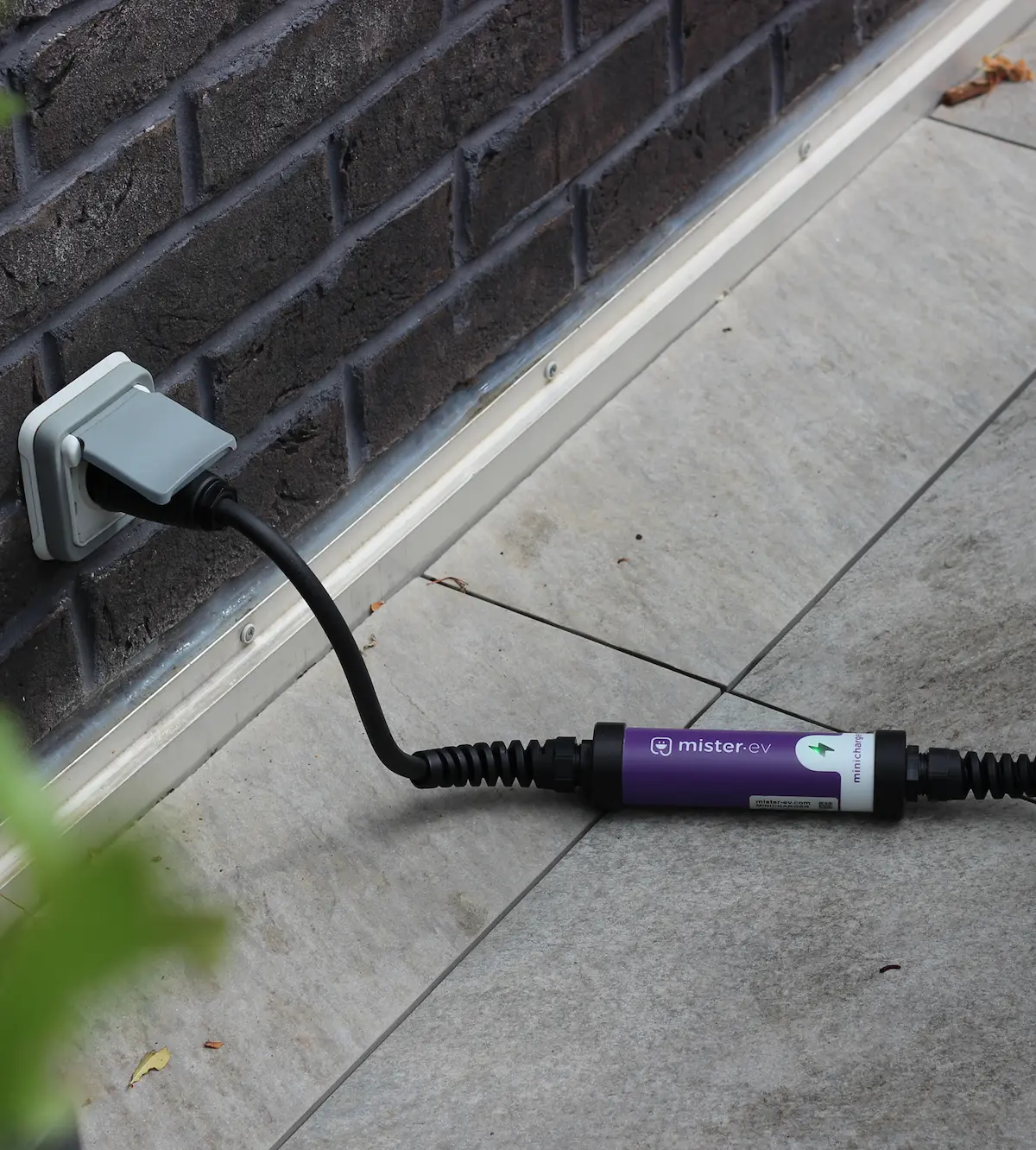
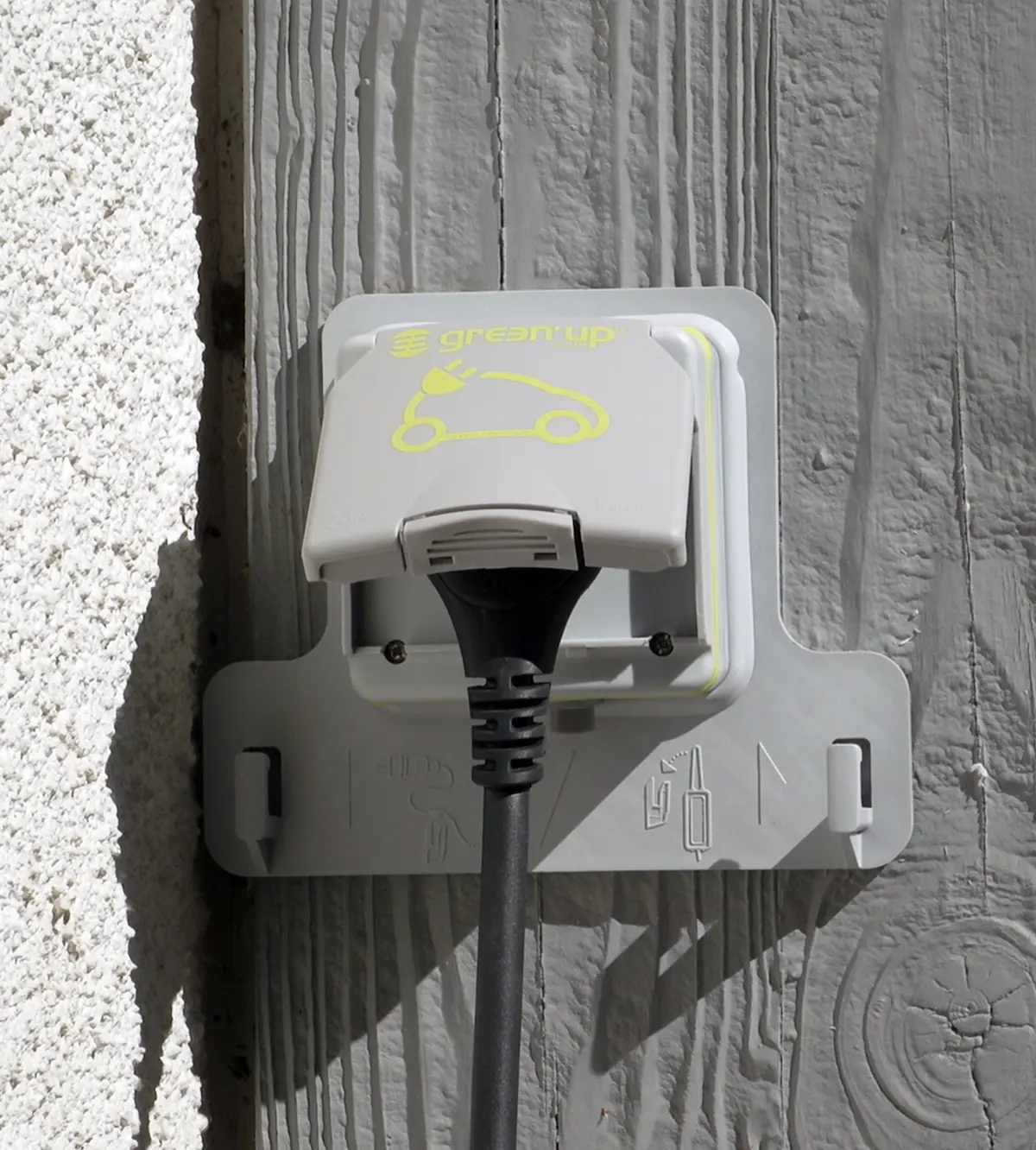
2. Reinforced Outlet (Green'Up)
It looks like a classic outlet, but its charging power is higher.
Charging characteristics:
- Connection to the vehicle via a reinforced outlet with a Mode 2 cable.
- Provides charging power up to 3.7 kW.
- Ideal for more frequent charging without installing a charging station.
- Reduced charging time compared to a standard outlet.
To go further: Everything you need to know about reinforced outlets for charging your electric vehicle
3. Wall Charging Station
Installing a wall charging station allows you to charge your electric vehicle at an accelerated rate.
Charging characteristics:
- Uses a Mode 3 cable with a Type 2 plug (European standard).
- Enables fast charging up to 7.4 kW (single-phase) or 11 kW (three-phase).
- Complete charge in 4 to 5 hours. Ideal for daily use.
To go further: Find a charging station for your Renault 5 Electric
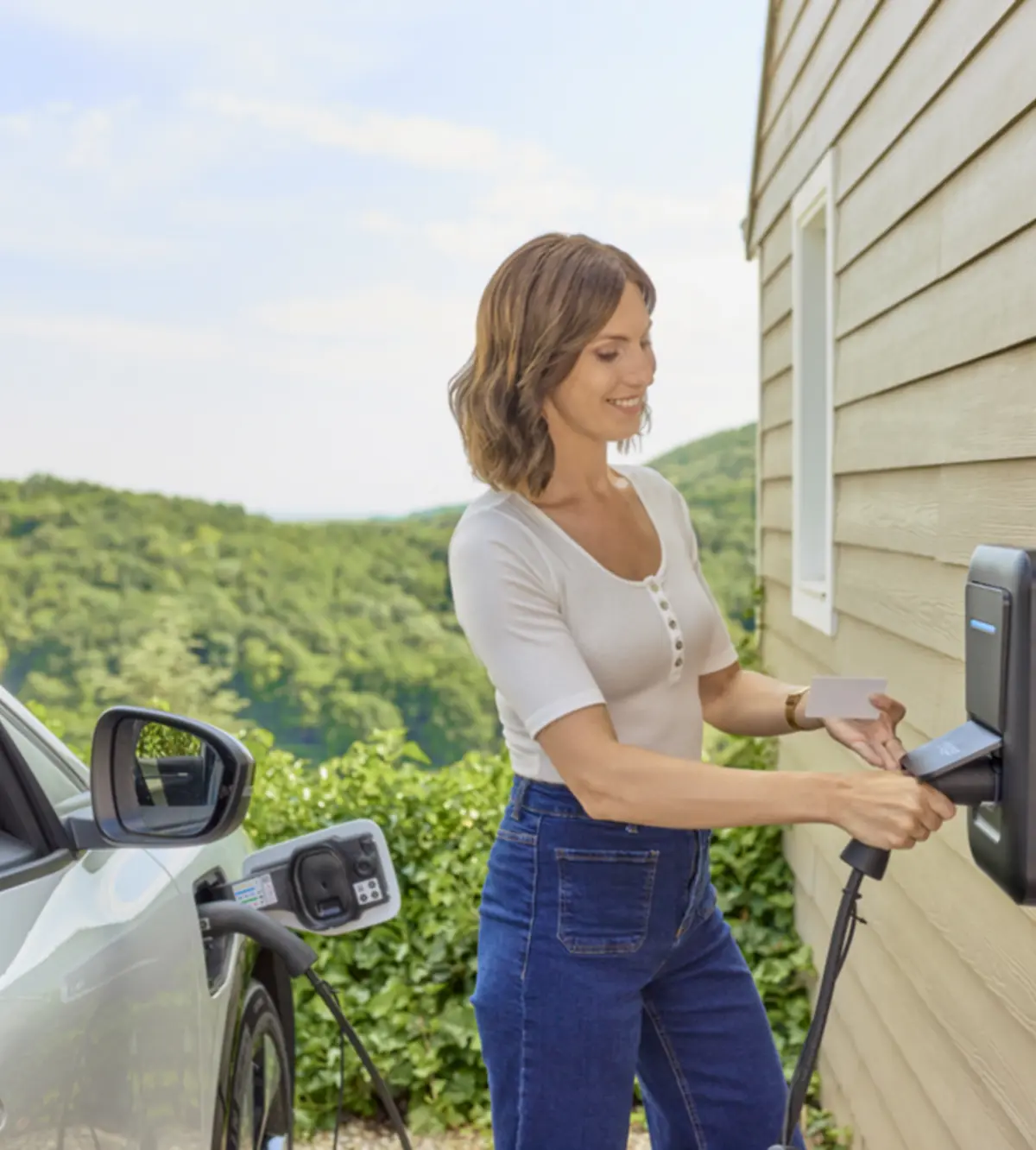
Frequently Asked Questions about Home Charging
How much does it cost to charge the Renault 5 Electric at home?
Charging at home is often the most cost-effective option. The cost mainly depends on key factors such as the vehicle’s energy consumption and your electricity provider’s price per kWh.
🪙 Easily estimate the cost of a home charge for the Renault 5 using the simulator from Automobile Propre.
How to install a charging point at home?
To install a charging point with a minimum power of 3.7 kW at home (whether you live in a house or apartment building), you must use a certified IRVE installer. Only they are authorized to benefit from government subsidies. They will notably perform a diagnosis of the building's electrical system and check the quality of electrical installations. They will also advise you on the type of charging station to buy, location, etc.
Our other EV charging guides by model
